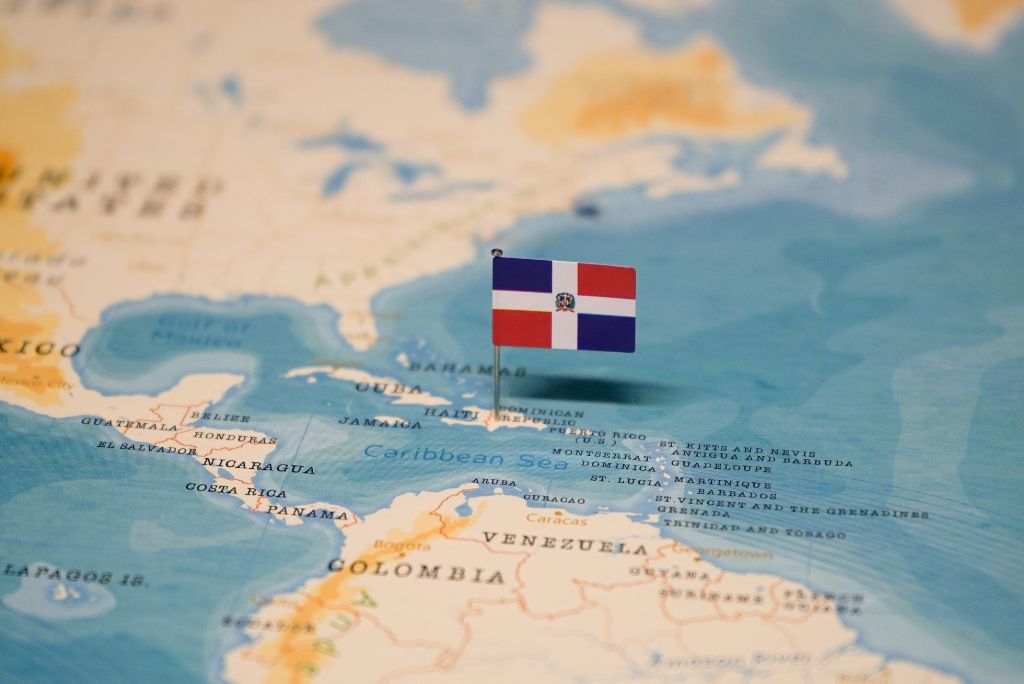ADVERTISEMENT
The Dominican Republic has intensified its measures against irregular immigration, particularly targeting Haitian nationals.
In 2024, authorities deported over 276,000 Haitians in irregular immigration status, according to the General Directorate of Immigration.
Durante el 2025 República Dominicana podría deportar más de 500 mil inmigrantes haitianos indocumentados, a menos que el presidente Abinader disponga el cese de la actual política de migración que contempla 10 mil deportaciones semanales.
Amplía https://t.co/m8XJPTpHVe #Acento pic.twitter.com/TiYsYl8QR5
— acento.com.do (@acentodiario) January 3, 2025
This policy has been reinforced with the announcement of a plan to repatriate up to 10,000 undocumented individuals per week, aiming to reduce the immigrant population in Dominican communities.
The Dominican people are calling on the government to take these measures, deeming them necessary to maintain the country’s security and order, arguing that Haiti’s crisis has fueled irregular immigration. However, one might question whether immigration alone influences the country’s economic challenges—or if its flawed laws also play a role.
The international community has also expressed concern about the situation in Haiti, where gang violence and political instability have led to a surge in migration.
Despite criticism, the Dominican government remains steadfast in its position, implementing measures such as increasing border inspectors and constructing temporary camps for repatriated individuals. But is this the only solution to Haiti’s ongoing crisis?
Recent studies show a link between irregular immigration and an increase in certain crime rates in vulnerable areas, although it is also true that not all immigrants are associated with criminal activities.
En República Dominicana los Extranjeros están USURPANDO
a los Dominicanos por Medio del
ROBO DE IDENTIDAD con la Ayuda
de la JCEEso comenzó en el Gobierno del PLD y con el PRM no hacen nada para RESOLVER Y SOMETER a los Culpables yo fui Víctima de eso
Cuando usted viaja pic.twitter.com/1F8CBOrmt1— francis G (@FiancisT) January 3, 2025
Data from the Citizen Security Observatory in Santo Domingo reveal that crimes such as theft and homicide have risen by 15% in areas with high concentrations of irregular immigrants.
A Presidential Stand on Immigration
Dominican President Luis Abinader has reaffirmed his commitment to maintaining a strict immigration policy due to the severe security crisis in Haiti.
According to his statements, the current situation in Haiti is «unprecedented» and represents a significant challenge to his country’s security. For this reason, the Dominican government implemented a mass deportation plan for Haitian citizens in irregular immigration status, starting in early October, with a goal of deporting at least 10,000 people per week. But how is this being executed?
🛑 🇩🇴 URGENTE. Ni me lo contaron, ni me lo mandaron. Esto lo grabé ayer en el malecón de Santo Domingo a las 5 de la tarde. A plena luz del día se violan con todo descaro los derechos humanos más elementales de los migrantes de Haití en República Dominicana. Camiones para ganado… pic.twitter.com/sbUov7IUZb
— Lautaro Rivara (@LautaroRivara) November 29, 2024
Abinader emphasized that, although the new Haitian government led by Alix Didier Fils-Aimé appears open to dialogue, Haiti’s internal situation remains complicated. He also stressed the importance of protecting the border with the active presence of the Dominican Army and the work of the General Directorate of Migration.
The president expressed concerns about the “limbo” faced by the Multinational Security Support Mission in Haiti, led by Kenya, partly due to the change of administration in the United States.
Balancing National Security and Humanitarian Concerns
The tightening of immigration policies in the Dominican Republic responds to a need to preserve internal order and security amid a surge in immigration, especially from Haiti.
However, the migration burden cannot fall solely on a nation already facing significant economic and social challenges. The lack of regulation has created pockets of insecurity and social tensions that threaten the country’s stability.
Les están entregando los hospitales y las escuelas!
En solo 4 años nacieron en hospitales dominicanos más de 100 mil haitianos.
En las escuelas de República Dominicana están han estudiado y están estudiando más de 200 mil haitianos.
Y lo peor de todo es que después cuando va… pic.twitter.com/Ntqw33FYh0
— Pato Bonato (@patobonato) November 5, 2024
About The Author
Read the full article here


